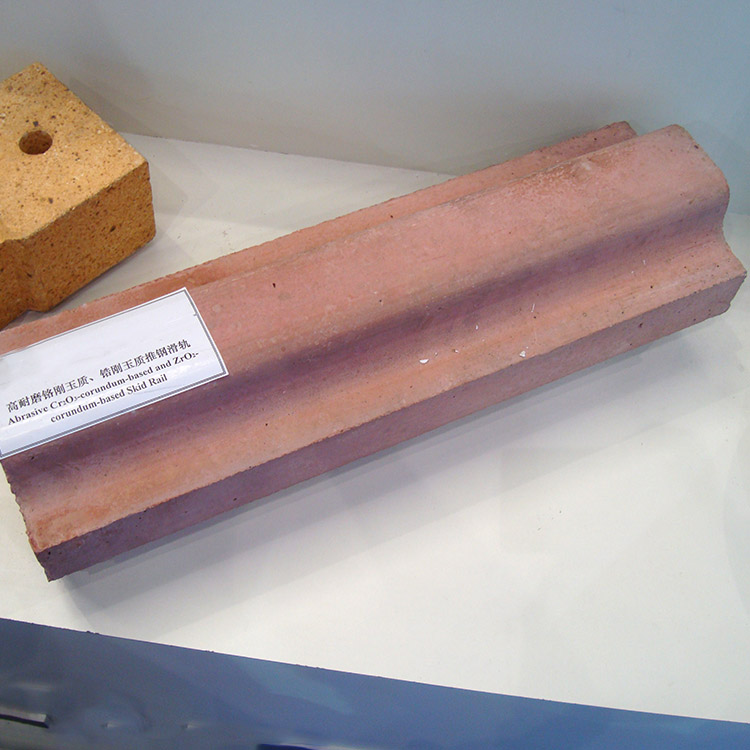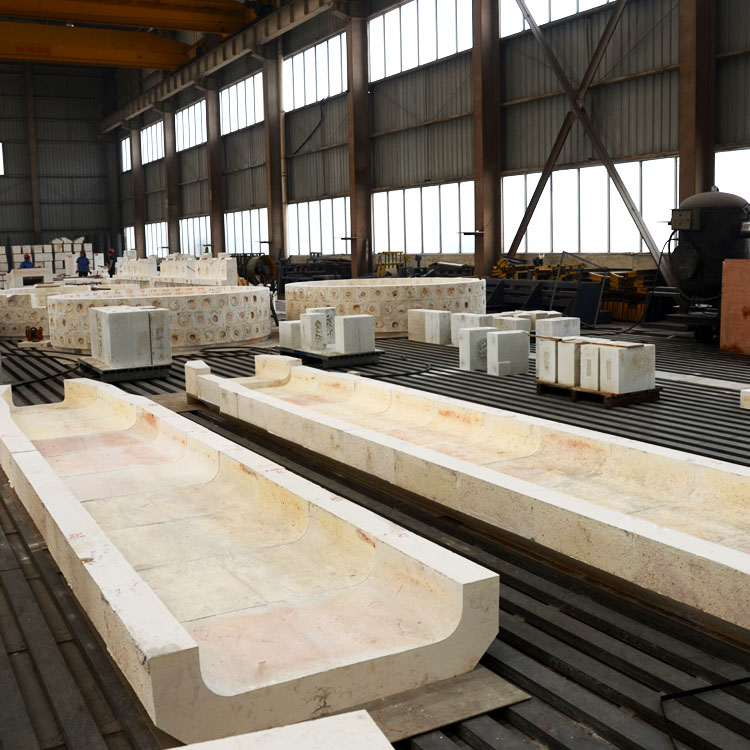
Refractory materials play a pivotal role in ensuring the stability and efficiency of glass melting furnaces. However, these materials frequently encounter critical issues such as corrosion from aggressive glass melts and undesirable component solidification, jeopardizing equipment longevity and product quality. Understanding the root causes and optimizing refractory solutions are paramount for global glass manufacturers aiming to elevate operational reliability and reduce costly downtime.
AZS cast blocks, particularly the premium electrofused AZS33, have emerged as industry benchmarks in combating refractory degradation. This specialized product consists primarily of high-purity alumina powder (Al₂O₃) synergistically combined with zircon sand (ZrSiO₄). The precise blending of these raw materials forms a chemically stable and thermally resilient refractory designed specifically for continuous exposure to molten glass environments.

The advanced AZS33 formulation is characterized by an exceptionally dense microstructure achieved through electrofusion technology, minimizing porosity and micro-cracks. This dense matrix substantially inhibits the infiltration and corrosive attack of molten glass, which is commonly rich in alkalis and silica. Scientific analysis shows that the high content of alumina (approximately 55-60%) in combination with zirconia phases endows the block with superior mechanical strength exceeding 110 MPa and exceptional thermal shock resistance above 1200 cycles.
These intrinsic material properties translate into extended service life and reduced maintenance frequency in demanding zones such as glass bath bottoms, forehearth channels, and regenerator walls. The ability of AZS33 blocks to withstand temperatures surpassing 1750°C while maintaining dimensional stability reinforces their position as a highly reliable refractory choice.

The versatility of AZS33 refractory blocks makes them ideal for multiple critical sections within glass melting furnaces. Their application in the fusion zones has been repeatedly demonstrated to reduce corrosion rates by up to 30%, extending the operational lifecycle of furnace linings significantly compared to conventional fireclay bricks.
Leading glass manufacturers worldwide report improved process stability and product consistency after adopting AZS33 refractory systems. For example, a European glass producer recorded a 25% increase in furnace campaign duration combined with a 15% reduction in downtime for maintenance over a 12-month period. This translated into measurable cost savings and enhanced product quality control.

The scientifically engineered AZS33 electrofused refractory blocks offer unmatched scientific formulation and reliable performance, specifically tailored for the glass industry’s toughest challenges. Their dense microstructure and high-purity composition directly address corrosion and solidification problems common in glass production, ensuring high-efficiency operational保障 and sustained product excellence.
Industry decision-makers seeking durable and high-performing refractory materials for next-generation glass melting units are encouraged to evaluate AZS33 blocks as a core component of their infrastructure upgrades. By integrating these proven materials, manufacturers can secure process stability, minimize costly interruptions, and ultimately maximize ROI.

